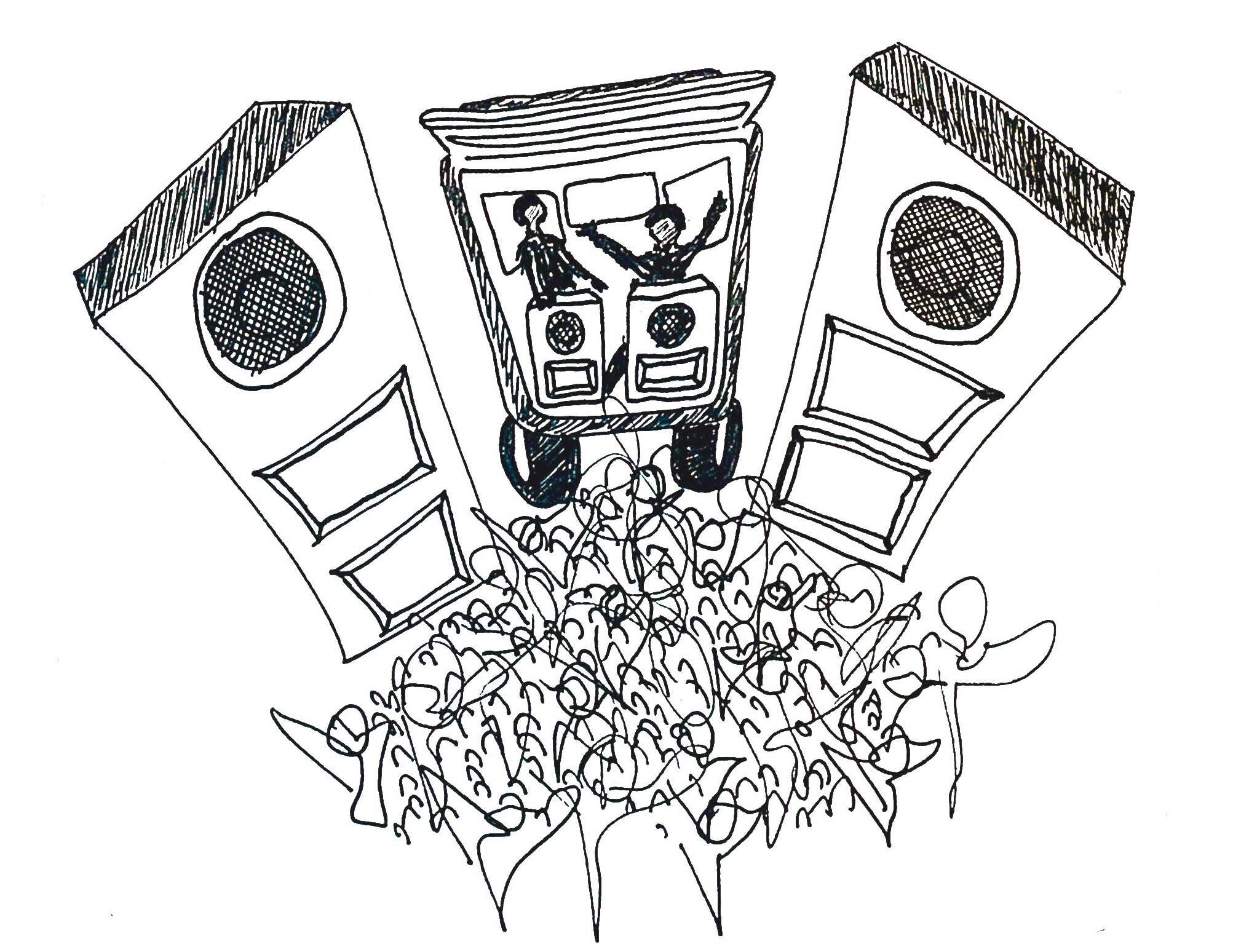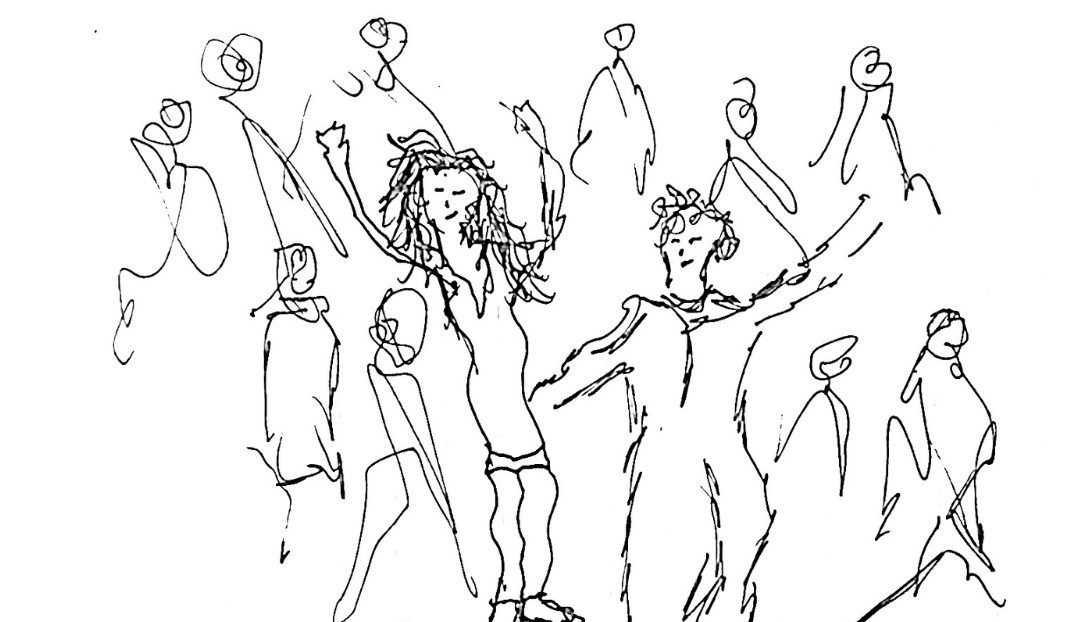Undeniably one of the best parts of a music festival isn’t when you are watching music, enjoying food trucks, or admiring art. It’s that moment after you have unloaded your car, pegged in your tents, and put up the gazebos. When you pull out your camp chair, reach within arm distance into an esky filled with ice-y beers and incidentally in unison crack them open with your mates. Kchoooooo (this is my poor attempt at spelling out the sound of opening a beer can).
Someone will turn on their mini speaker and usually play the tunes of all of the music acts you’re about to see over the next few days. And there are likely a few packets of chips or lollies being passed around the circle of camp chairs. Overall, there is a sense of relief as at this time you have a few hours until the music begins. This is when the banter commences; when you catch up and hear what one another has been up to since you last caught up. You might even chat with the surrounding campers about how excited you are for what’s to come. It opens up space for connection. This is what I love about music festivals.
Each year, in March, I get to experience my favourite time of a music festival in the country of Victoria, on the lands of the Wadawurrung in The Meredith Supernatural Amphitheatre, at Golden Plains music festival.
While the early moments of the festival hold a special place in my heart, it's the entire experience, from start to finish, that always surpasses my expectations. Part of the reason for this is due to the ‘No Dickhead Policy’ that they created in the 90s and have stuck to ever since.
So, what is a ‘No Dickhead Policy’?
They have a page dedicated to explaining the policy on their website: ‘If you behave like a dickhead, this place isn’t for you. If you have a mate who behaves like a dickhead, please leave them at home. People who behave like dickheads, or people doing dickhead things, will usually find that someone firmly but politely lets them know that their dickhead behaviour is not admired or appreciated. The person behaving like a dickhead will usually realise and pull their head in. If not, they’ll need to leave.’
The brilliance of the ‘No Dickhead Policy’ lies in its simplicity. There’s no need for lengthy definitions—everyone knows what ‘dickhead’ behaviour is, and it’s understood that it won’t be tolerated. From my experience, this policy sets up an ideal foundation for communal responsibility, laid out in accessible, grounded language.
The policy is noted throughout the majority of their emails, and you will see it outlined in posters all around the festival itself. If you do come across ‘dickhead’ behaviour and calling them out hasn’t done the job, or isn’t enough for what the behaviour entailed, you are encouraged to go to their helper hut, or to contact a specified number or email address. Your anonymity will be respected if that’s what you’ve asked for.
After attending three times, I can honestly say that the atmosphere is one of warmth and acceptance. The policy isn’t just a line in the T&Cs—it’s something you hear about from the crowd, the performers, and the hosts, creating a real sense of community.
I’ve never had to call someone out and I trust that I likely never will. This isn’t the case for all festivals, but not all festivals are cracking the code of good vibes.
Good festival vibes come down to a few things, the first being dancing. I have danced through too many sets with my friends where we are the only ones fully letting loose, while everyone around us is doing what we call ‘the bop’. The bop is a term that my friends and I made up. It occurs when people stand almost still, facing the DJ, and bop their head up and down ever so slightly, and generally only acknowledge those around them every few minutes. Of course, everyone has their own way of enjoying the music, but once you go to a festival where everyone is dancing freely, you’ll become addicted to the feeling.
Secondly, the vibes come down to: the audience. I’m looking for a diverse crowd of people and those moments of connection. I have a friend who starts limbo in the middle of a set and gets up to 20 people playing. You want to be standing next to her at a festival. Also, I am usually on the hunt for deep conversations with a stranger at 1 am, only to most likely never see them again. This is the type of audience I remember from my time at festivals.
And lastly we have: the music and arts. This might be obvious, and very subjective, but the goal is to be at the stage for as long as possible and to achieve this you need the wow factor of a good lineup to make it happen. Music festivals are just as much a place of discovery as they are a place to enjoy what you already love. I discovered some of my favourite musicians from seeing them at a music festival for the first time. In the past, I couldn’t understand why someone might attend a festival without knowing every lyric of every song and the beats of each set. It took me a few festival visits over the year with well-rounded lineups to appreciate this, hence why I love Golden Plains.
There is one other part of a music festival that I love as much as I adore how it begins; the end. There was once a time when I would leave festivals in a rush and be on a mission to begin a long bed rot. Now, as I drive away, it’s all about hugs, ‘see you at the next one,’ and helping each other pack up. There’s no trash left behind, no broken tents—just a quiet respect for the land and the shared experience.
My mate told me that once after this festival, she and her friends cried with happiness in a KFC on the car ride home. I don’t think there are many dickheads who end their weekend crying about having a great time.



